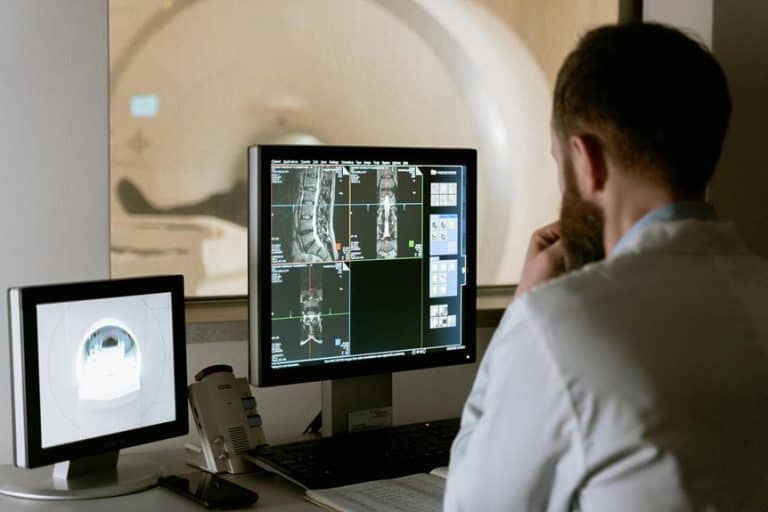Ear Infection in Autistic Child
Experiencing challenges with ear health can be a common concern for many children, but what happens when this issue intersects with the complex landscape of autism?
Picture a scenario where the impact of ear infections on an autistic child's overall well-being goes beyond the physical discomfort typically associated with such infections.
The interaction between sensory sensitivities, communication difficulties, and behavioral changes in these children presents a unique set of considerations that demand a closer look.
Let's explore how addressing ear infections in autistic children involves managing a multifaceted terrain that requires tailored approaches to care and support.
Key Takeaways
- Autistic children have higher rates of ear infections, impacting their development and behavior.
- Diagnosing ear infections in autistic children is challenging due to atypical symptoms and communication difficulties.
- Timely intervention with ear tube insertion is crucial to prevent complications and enhance quality of life.
- Home remedies, supportive care, and regular ENT visits aid in managing ear infections in autistic children effectively.
Prevalence of Ear Infections in Autistic Children

Autistic children exhibit a markedly higher prevalence of ear infections compared to their neurotypical counterparts, with lower-functioning individuals often experiencing these infections at a younger age. The presence of characteristics like low-set ears and heightened autistic symptomatology in these children seems to coincide with a higher likelihood of ear infections.
Symptoms such as 'glue ear' and hearing difficulties are more commonly observed in autistic children following cold infections. It's important to note that there's a suggested association between ear, nose, and throat symptoms and autism, particularly noticeable in very young children.
Understanding the prevalence of ear infections in autistic children is essential due to the potential impact on their overall well-being and development. Early identification and management of these infections are vital to mitigate the risk of complications and provide the necessary support for these vulnerable individuals.
The intricate interplay between ear infections and autism underscores the importance of tailored care and specialized interventions for this unique population.
Unique Challenges in Diagnosis

Regrettably, diagnosing ear infections in children with autism presents a set of distinctive challenges that require careful consideration and specialized attention. Due to communication difficulties and sensory sensitivities commonly seen in autistic children, recognizing typical signs of ear infections can be complex. Behavioral differences may mask usual symptoms like ear pulling or verbalizing pain, making it important for caregivers and healthcare providers to stay vigilant for subtle indicators of ear infections to guarantee timely treatment.
Autistic children might exhibit atypical symptoms or struggle to convey discomfort effectively, demanding a tailored approach to diagnosis. Co-occurring conditions such as language delays or hyperacusis further complicate the identification of ear infection symptoms in autistic children. Hence, a keen understanding of these unique challenges is essential in overcoming barriers to accurately diagnosing and addressing ear infections in this population to promote best health outcomes and well-being.
Impact on Health and Behavior

How do ear infections impact the health and behavior of children with autism? Ear infections can greatly affect autistic children in various ways, influencing both their physical well-being and behavioral patterns.
- Language Development: The delays in language development that may result from ear infections can be particularly challenging for autistic children, as it hinders their ability to communicate effectively.
- Sensory Sensitivities: Ear infections can worsen sensory sensitivities in autistic children, leading to increased discomfort and potential behavioral issues.
- Social Withdrawal: The presence of chronic ear infections can contribute to social withdrawal and difficulties in social interactions, impacting the child's overall behavior and communication with others.
Early detection and effective management of ear infections in autistic children are essential not only to alleviate immediate health concerns but also to prevent potential long-term impacts on their behavior and overall well-being. Addressing these issues promptly can help mitigate the challenges these children face in their daily lives.
Recognizing Symptoms in Autistic Children
Noticing subtle changes in behavior and physical cues can aid in promptly identifying symptoms of ear issues in children on the autism spectrum. Autistic children may display signs like ear pulling, mouth breathing, snoring, or pus/mucus discharge from ears, indicating potential ear infections. These early symptoms can be linked to speech coherence difficulties and hearing problems, especially during cold infections.
Research has shown a significant association between autistic traits and ear, nose, and throat (ENT) symptoms, emphasizing the importance of monitoring these signs in early childhood. Studies have found correlations between ENT signs and autism traits as early as 30 to 42 months, suggesting a possible early marker for identifying autism risk in children.
Early detection and treatment of ENT conditions in autistic children are essential for improving their quality of life and managing co-occurring conditions effectively. Being vigilant about these symptoms can lead to better outcomes and overall well-being for autistic children.
Treatment Options for Ear Infections

When addressing ear infections in autistic children, treatment often involves the use of antibiotics to combat bacterial infections effectively.
Additionally, pain management strategies like acetaminophen or ibuprofen can help alleviate discomfort associated with ear infections.
In cases of recurrent infections, surgical interventions such as tympanostomy tubes may be recommended to prevent further complications and promote healing.
Antibiotics for Infection
When treating ear infections in autistic children, selecting the appropriate antibiotic and diligently following the prescribed regimen are essential steps to effectively combat the bacterial infection and alleviate associated symptoms. Antibiotics play an important role in eliminating the bacterial infection causing the ear infection and in reducing symptoms like pain and fever. It's important to adhere strictly to the prescribed antibiotic regimen to guarantee complete eradication of the infection. Additionally, considering factors such as antibiotic resistance and potential allergic reactions is significant when treating ear infections in autistic children.
- Proper selection of antibiotics
- Diligent adherence to prescribed regimen
- Monitoring for antibiotic resistance and allergic reactions
Pain Management Strategies
To effectively manage ear infections in autistic children, exploring various pain relief options can greatly improve their comfort and well-being. Parents can consider over-the-counter pain relievers like acetaminophen or ibuprofen, making sure the correct dosage for their child's age and weight.
Additionally, applying warm compresses to the affected ear can help alleviate pain and discomfort associated with ear infections. Healthcare providers may recommend prescription ear drops containing antibiotics or pain-relieving medications to address symptoms.
Combining medication with home remedies, such as warm compresses, can offer a thorough approach to pain management for autistic children with ear infections. Regular follow-up appointments with healthcare providers are important to assess the effectiveness of these strategies and ensure the proper healing of ear infections.
Ear Tube Insertion
Considering the challenges of recurrent ear infections in children, especially those with autism, ear tube insertion emerges as an important treatment option to alleviate symptoms and enhance overall quality of life. Ear tube insertion, also known as tympanostomy tube placement, is a common procedure that involves inserting tiny tubes through the eardrum to allow airflow and drainage, reducing the risk of fluid buildup and infections.
This intervention can greatly improve hearing, reduce pain, and prevent speech and language delays caused by chronic ear infections in autistic children. Follow-up care post-ear tube insertion is essential to monitor the child's ear health and ensure proper functioning of the tubes for the best management of ear infections.
- Improved airflow and drainage
- Prevention of fluid buildup and infections
- Monitoring ear health through follow-up care
Importance of Timely Intervention

Given the delicate nature of ear infections in autistic children, swift intervention plays a pivotal role in safeguarding their hearing and language development. Early identification of signs such as upper respiratory symptoms can lead to a timely diagnosis and treatment, preventing potential complications that may impact the child's developmental progress. Addressing ENT conditions promptly not only helps improve the quality of life for autistic children but also enhances their language development.
Support and Care Strategies for Parents

As a parent of an autistic child with an ear infection, it's essential to explore gentle home remedies like warm compresses to alleviate discomfort while awaiting a doctor's consultation.
Seeking prompt medical advice is important to prevent potential complications and guarantee proper treatment tailored to your child's needs.
Home Remedies
When caring for an autistic child with an ear infection, implementing gentle home remedies can provide comfort and support during this challenging time. Research suggests that children with autistic traits may be more prone to upper respiratory and ENT conditions like otitis media with effusion.
To help alleviate symptoms and aid in recovery, consider the following home remedies:
- Warm Compresses: Apply warm compresses to the affected ear to alleviate pain and discomfort.
- Hygiene Maintenance: Gently clean the outer ear to prevent further infections.
- Nutritious Diet: Encourage hydration and a balanced diet rich in immune-boosting nutrients to support overall health.
These strategies, along with creating a calm environment, can help ease the child's discomfort and promote healing.
Doctor Consultation
How can we best support and guide parents of autistic children in managing consultations with ear, nose, and throat specialists for effective care strategies in handling ear infections?
Regular visits to an ENT specialist are essential to monitor and address any ear infection symptoms promptly in autistic children. When consulting with the doctor, discuss treatment options that consider your child's unique needs and sensitivities.
Follow the care strategies recommended by the specialist to effectively manage ear infections and minimize their impact on your child's development. Stay vigilant about the signs and symptoms of ear infections in autistic children to detect issues early and seek timely medical intervention.
Collaborate with healthcare professionals to create a comprehensive care plan that prioritizes monitoring and addressing ear infections to support your child's overall well-being.
Frequently Asked Questions
Are Ear Infections Common With Autism?
Yes, ear infections are common in autistic children. Sensory sensitivity may amplify ear pain, affecting communication and behavior. Medical interventions, like antibiotics, require consideration due to antibiotic resistance concerns. Early detection is vital for best treatment.
Are Autistic Children More Prone to Infections?
I understand the concerns about autistic children being more prone to infections. Factors such as immune system vulnerabilities, genetic predispositions, and environmental influences can contribute to this susceptibility, impacting their overall well-being and requiring specialized care.
What Are the ENT Issues With Autism?
ENT issues in autism encompass sensory challenges affecting communication, social interactions, and behavioral therapies. Genetics, early interventions, speech delays, motor skills, and cognitive abilities intertwine with sensory sensitivities. Understanding these complexities can enhance support strategies for individuals with autism.
What Are the 3 Main Symptoms of Autism?
The three main symptoms of autism encompass social challenges, communication difficulties, and sensory sensitivities. These aspects intertwine to shape the unique behaviors and characteristics within the autism spectrum, highlighting the importance of neurodiversity awareness.
Conclusion
After experiencing countless ear infections with my autistic child, I've come to realize that these challenges have only made us stronger.
It's ironic how something as painful as ear infections can actually bring us closer together, teaching us resilience and the power of love.
While the road ahead may be tough, I now see each infection as a reminder of our unbreakable bond and unwavering strength.







